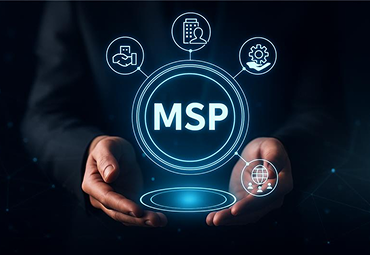The federal cybersecurity landscape is shifting dramatically. On November 10, 2025, the Department of Defense (DoD) will finalize the Cybersecurity Maturity Model Certification (CMMC) rule within Title 48 of the Code of Federal Regulations (CFR)—marking the beginning of a four-year phased implementation cycle that will transform how defense contractors safeguard Controlled Unclassified Information (CUI).
The 4-Year CMMC Implementation Timeline
- Year 1: Contractors begin with self-attestation under CMMC Levels 1–2.
- Year 2: Approximately one-third of DoD contracts will include CMMC certification requirements.
- Year 3: Two-thirds of contracts will require verified certification.
- Year 4: All DoD contracts will require CMMC compliance for award eligibility.
This rollout represents the most significant change in defense cybersecurity since NIST SP 800-171. For contractors and subcontractors within the Defense Industrial Base (DIB), maintaining compliance with CMMC, DFARS 252.204-7012, and NIST SP 800-171/172 is now a fundamental business requirement.
What Is an MSP and Why It Matters
A Managed Service Provider (MSP) delivers ongoing IT, cybersecurity, and compliance management.
For DoD contractors, MSPs play a critical role by combining operational IT expertise with regulatory knowledge.
An experienced MSP helps organizations:
- Implement and maintain security controls aligned with CMMC, DFARS, and NIST SP 800-171
- Conduct readiness assessments and document compliance evidence
- Provide continuous monitoring, incident response, and vulnerability management
- Support audit preparation and system security plan (SSP) maintenance
Partnering with the right MSP ensures you stay compliant across the entire four-year CMMC rollout while maintaining productivity and data integrity.
The Challenges of Going It Alone
Trying to meet evolving cybersecurity mandates internally can be risky and expensive. Contractors without specialized support often face:
- Missed CMMC rule updates and DFARS clause revisions
- Weak or inconsistent control implementation
- Failed assessments due to incomplete documentation
- Lost revenue from ineligibility for DoD contracts
Outsourcing compliance to a qualified MSP reduces risk, cost, and complexity—allowing you to stay focused on your mission.
Key Benefits of Partnering with an MSP
1. Proven Expertise in Compliance Frameworks
MSPs specializing in government compliance understand CMMC, NIST SP 800-171 Rev 3, DFARS 252.204-7021, and related frameworks. They interpret rule changes and translate them into actionable steps—helping your organization maintain compliance year after year.
2. Strengthened Cybersecurity Posture
Beyond documentation, MSPs deliver practical protection. They deploy endpoint detection, SIEM monitoring, and vulnerability scanning tools to prevent breaches and ensure ongoing compliance verification.
3. Cost Efficiency and Scalability
MSPs offer shared resources and automation that lower costs compared to building a full in-house compliance department. Their service models scale as your contract portfolio or security requirements evolve.
4. Focus on Core Business and Mission
By offloading compliance and monitoring to experts, internal teams can focus on operational delivery and business growth—knowing your systems are protected and compliant.
How to Choose the Right MSP
When evaluating potential MSP partners, focus on these key factors:
- Experience with Federal Contractors: Choose an MSP that has supported organizations through CMMC readiness or DFARS compliance audits.
- Regulatory Expertise: Ensure your MSP understands the DoD Assessment Methodology, NIST SP 800-171 Rev 3, and CMMC Assessment Process (CAP).
- Reputation and References: Verify client testimonials and references within the DIB.
- Alignment with Your Objectives: The right MSP should act as your strategic compliance partner, not just a vendor.
The CMMC Implementation Timeline: Why Acting Now Matters
Although CMMC enforcement will phase in over four years, waiting to begin compliance preparation poses serious risks.
Organizations that act early will:
- Identify and close compliance gaps
- Build a defensible audit trail
- Avoid last-minute disruptions to contract eligibility
CMMC compliance is not a one-time event—it is a continuous process. Starting now ensures you are ready before certification becomes mandatory for your contracts.
Partner with SecureITSM for CMMC and DFARS Compliance
Secure IT Service Management, Inc. (SecureITSM) helps government contractors navigate CMMC, DFARS, and NIST cybersecurity requirements through our AgileDefend™ Managed Security and Compliance Services.
We help organizations:
- Achieve and maintain CMMC Level 1–2 readiness
- Implement and monitor NIST 800-171/172 controls
- Document and maintain compliance for DFARS 252.204-7012 and 7021
- Continuously monitor and remediate compliance drift
Take control of your compliance journey before deadlines arrive.
Schedule a consultation at meet.SecureITSM.com to learn how SecureITSM’s AgileDefend™ service can guide your organization through every stage of the four-year CMMC implementation cycle—ensuring compliance, security, and operational confidence.

